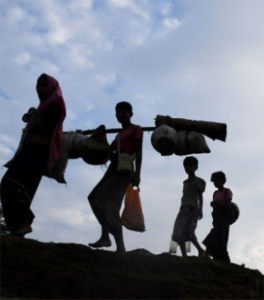Break through move on statelessness
The US government has pledged to adopt a formal definition of statelessness and for the first time to develop an official process to identify and protect stateless individuals in the United States who are not recognised as nationals by any country in the world.
The UN refugee agency UNHCR has hailed the move as break though in the rights of stateless persons.
 “The US’ commitment to address the situation of stateless individuals in the United States offers real hope globally to stateless people who have been forced to live in the shadows and place their lives on hold simply because they have been deprived of a nationality and many of the basic rights that nationality automatically confers,” the UNHCR said in a statement.
“The US’ commitment to address the situation of stateless individuals in the United States offers real hope globally to stateless people who have been forced to live in the shadows and place their lives on hold simply because they have been deprived of a nationality and many of the basic rights that nationality automatically confers,” the UNHCR said in a statement.
The US’ acknowledgment of the issue of statelessness and it pledge to work to resolve, challenges and obstacles faced by stateless people in the United States may prompt other nations to follow suit.
“It is a significant practical milestone and a tangible example of leadership demonstrating commitment to the conviction that every person belongs,” the UNHCR said.
UNHCR has been running a campaign to resolve issues around statelessness for several years. In 2018 it estimated the global number of stateless people at 12 million.
The international legal definition of a stateless person is “a person who is not considered as a national by any State under the operation of its law”.
This means that a stateless person does not have a nationality of any country.
Some people are born stateless, but others become stateless. Statelessness can occur for several reasons, including discrimination against particular ethnic or religious groups, or on the basis of gender; the emergence of new States and transfers of territory between existing States; and gaps in nationality laws.
Whatever the cause, statelessness has serious consequences for people in almost every country and in all regions of the world.
The UNHCR says millions of stateless people are denied a nationality and face considerable vulnerabilities in the context of climate change, including exclusion from disaster relief, healthcare and adaptation solutions.
Climate change is a risk multiplier for displacement. The risks of statelessness can increase when people move, including during displacement situations in the context of climate change and disasters.
Specific efforts are needed to reduce statelessness risks for displaced people and to include stateless persons in climate action to strengthen their protection and resilience.












